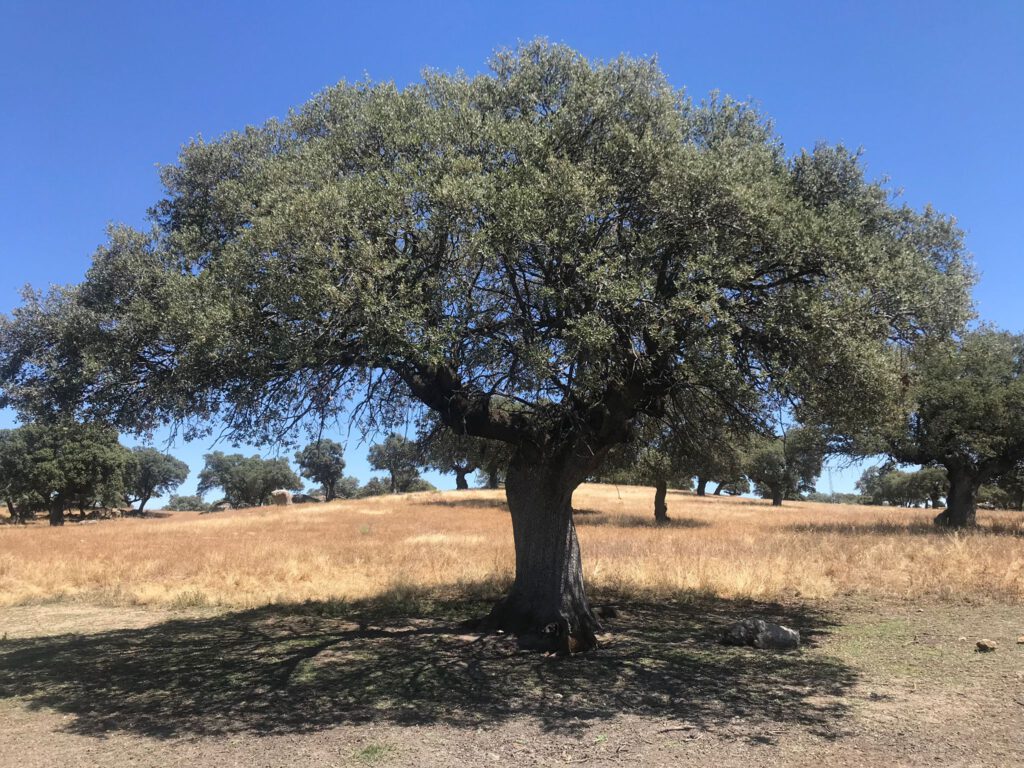One of the most important factors for the functioning of an estate in general, and the dehesa in particular, is proper forest management.
Our dehesas are a characteristic ecosystem of the Iberian Peninsula, serving as a key natural habitat for biodiversity and also a fundamental space for big game hunting estates. Sustainable maintenance requires well-planned forest management. In this way, we not only ensure the conservation of their environment, with special emphasis on fire prevention, but also contribute to preserving both game-related resources and the rest of the fauna and flora, promoting the natural balance of the entire system. This is essential for the profitability of the operation.
Fire is one of the most virulent threats, repeatedly ravaging our fields and woodlands and thus posing a serious risk to big game hunting estates, where the consequences of an uncontrolled fire can be devastating. A fire can devastate large areas in just a few hours, destroying habitats and even the fauna itself, as we have sadly witnessed on many occasions.
Implementing systematic, proper forest management with the assistance of professionals is essential to mitigate risks, regenerate the environment, and support the development of the estates.
Clearing and pruning help eliminate accumulated biomass, reducing the fuel load that feeds fires. Establishing clean and sufficiently wide firebreaks in precise locations hinders the spread of fires.
These tasks, such as locating firebreaks and carrying out logging, not only require specialized equipment and personnel but also a deep knowledge of the environment and the species. The holm oak, for example, is a delicate tree that requires careful pruning at a specific time to avoid damage. All of this must be done in accordance with established regulations.
Effective forest management promotes the natural regeneration of the forest and the improvement of the understory, essential for providing food and shelter to big game species and fauna in general. The conservation of mature trees favors the structural diversity of the forest, which in turn benefits local fauna. It is not only vital for game species but also for other species that contribute to the balance of the ecosystem.
As we can see, forest management requires cooperation and coordination between estate owners, game managers, forestry technicians, and environmental authorities. Short- and long-term planning is key to ensuring the viability of big game hunting estates and the conservation of the dehesa and woodlands as natural heritage.
It is essential to orient forest management towards regeneration to compensate for the loss of adult specimens due to age, diseases (drought), water stress, or fire action.
In the next blog, I will discuss the importance of controlling the densities of game populations for the preservation of the natural environment.

